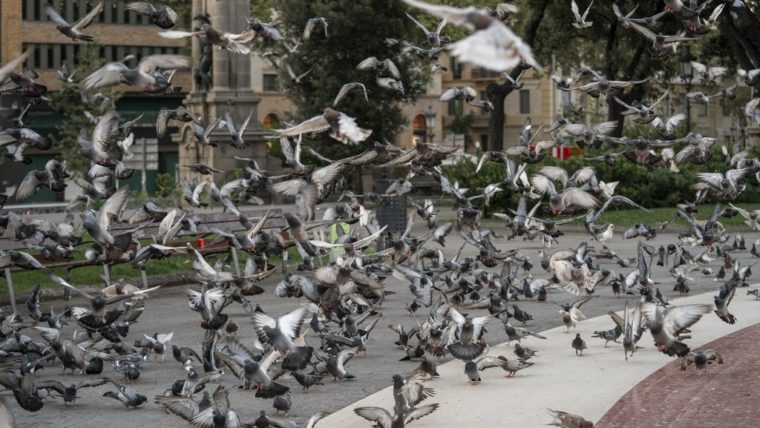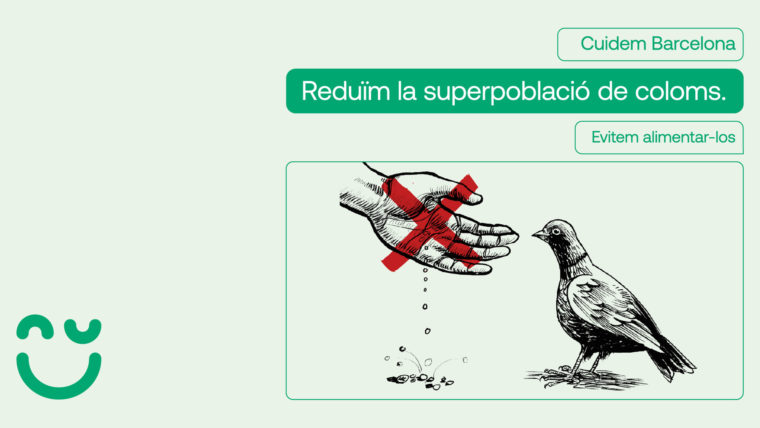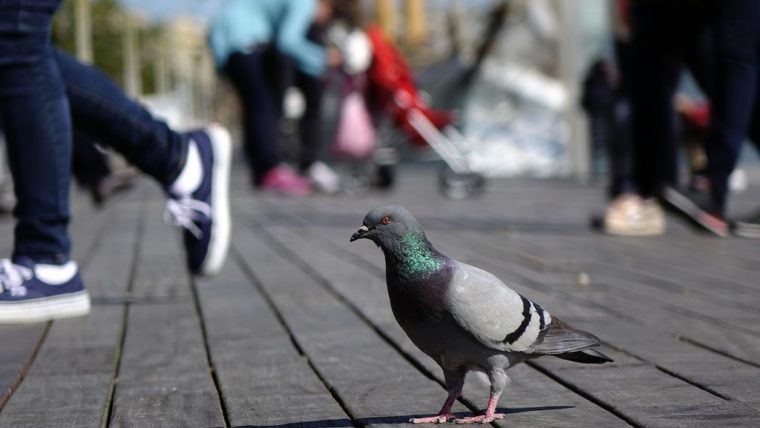Contraceptive treatment for pigeons as an ethical and respectful way of controlling their population
Pigeon populations have been cut by 60% since 2017 in areas where nicarbazin contraceptive methods have been used to reduce reproduction among colonies. This project is proving effective in reducing numbers of pigeons, requires no capture and represents a method which is respectful towards animal welfare and efficient in controlling fertility in colonies.
The city currently has 44 food dispensers covering 36 pigeon colonies. The feeders are positioned according to criteria on pigeon densities and the inconvenience they cause. A feeder was added in Plaça de la Gardunya in March, behind the Mercat de la Boqueria.
Besides reducing fertility, the comprehensive strategy for the effective control of the pigeon superpopulation involves the following:
- Significantly reducing the quantity of food given to pigeons by members of the public: this includes a public awareness drive as part of the Cuidem Barcelona campaign, urging people not to feed them. The pigeon superpopulation can be a public health problem, as some birds can suffer or transmit disease. At the same time, efforts are being made to dissuade people who give pigeons large volumes of food (some of them providing up to 5 kg of food a day), as well as regular feeders (providing between 1 and 5 kg a day). A training programme has been launched for municipal information staff, civic officers, social educators and neighbourhood police officers to identify people regularly providing food for pigeons in large volumes. The goal is to engage with these people so that they reduce or stop this activity.
- Make nesting more difficult: particularly in abandoned premises and buildings or those due to be renovated, where large numbers of nests can occur. The Directorate for Animal Rights Services (DSDA) issues incident-assessment reports and proposes action at the request of different services and districts with the City Council, including measures to prevent pigeons from resting or which reduce the inconvenience caused by their presence, for instance, in municipal facilities and spaces.
Another reason for seeking joint responsibility with the public is to address the growing public concern in connection with the presence of pigeons in the city. The total number of pigeon-related complaints and incidents received by the IRIS in the last year was 1,504. Of these, 241 were to do with pigeon feeders in the streets. This represents an increase of 67% compared to the previous year, with 897 complaints recorded in 2020.







